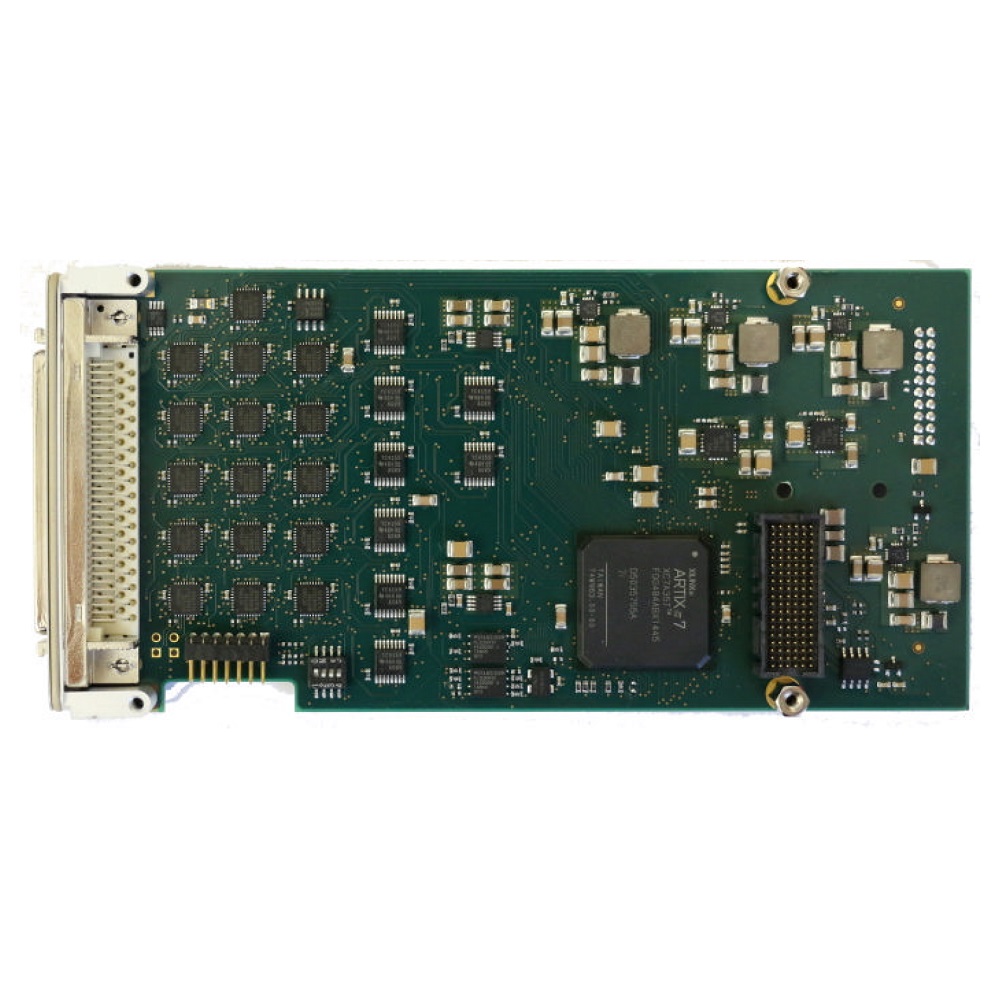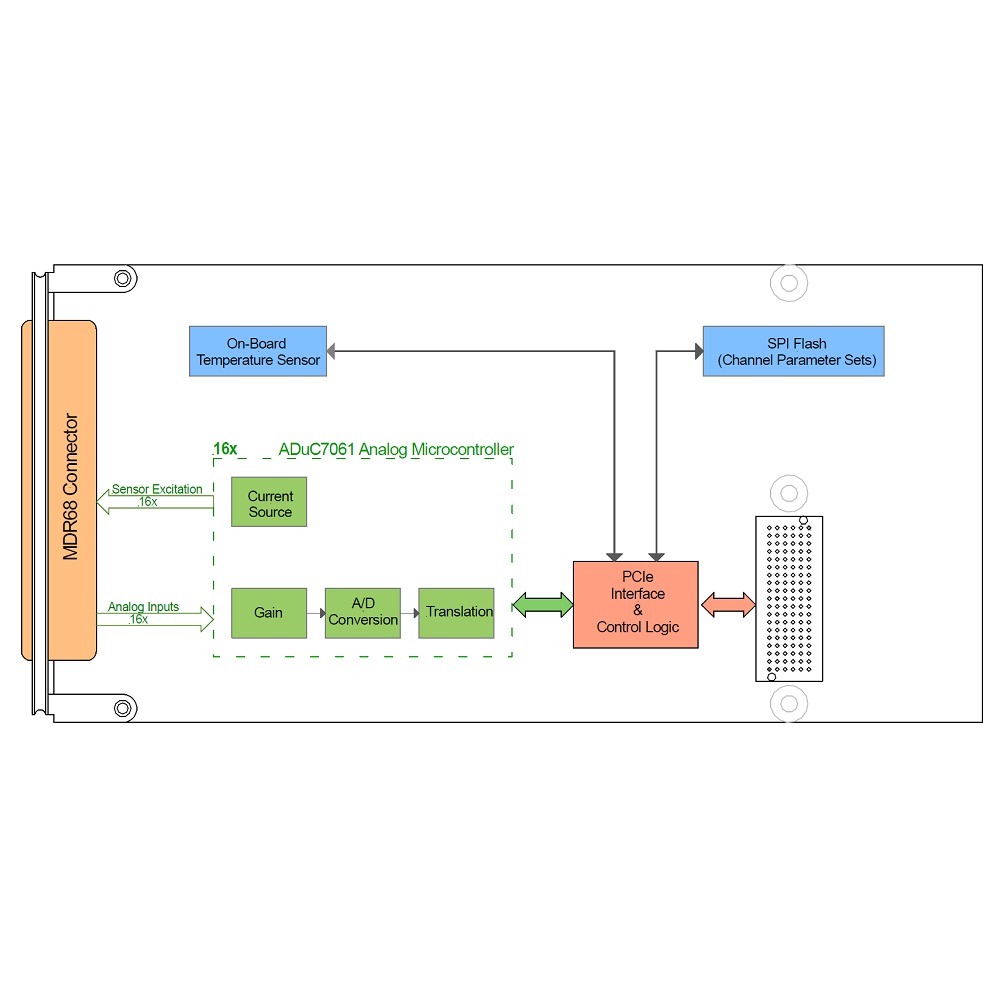TXMC590 16 Channel Thermo-Strain-Measurement XMC Module
The Thermo-/Strain-Measurement XMC module is able to measure thermocouples, resistive sensors like RTD and thermistors, and strain gauges. It provides 16 independent measurement channels. Each channel consists of a differential analogue input and a differential sensor excitation output.
For thermocouples, the cold junction compensation is done onboard, freeing the user application from this task. There are three possibilities to measure the cold junction temperature:
1) A second channel configured as resistive temperature sensor
2) An onboard I2C temperature sensor
3) An external I2C temperature sensor (not included).
For measuring RTD's ratio metric, there is a high precision reference resistor onboard. The excitation current is set up automatically according to the RTD channel settings.
All Strain Gauge types are supported (e.g. quarter, half and full bridge configurations). However, there is no bridge completion circuit onboard the TXMC590. Therefore, if quarter or half bridges are used, these have to be completed outside of the module. The excitation current is set up automatically according to the strain gauge channel settings. As well, every channel can be calibrated and the measured value is cleared of offset errors.
Each channel can separately be configured for any sensor type. The measured value is translated into a data value according to the sensor type, i.e. into temperature or microstrain. The translation may be set up to provide the data in a format that allows direct usage without further calculations. Measurements can be set up to operate periodically with different time bases or can be triggered via register access.
The TXMC590 features predefined parameter sets for the most common sensor types. Additionally, up to 16 user-defined parameter sets can be persistently stored on board. These user-defined parameter sets allow supporting even user defined sensors. A software tool to build these user-defined parameter sets is part of TXMC590-SW-xx. For special customer requirements, the microcontroller is also programmable via PCI Express which allows developing and programming special firmware into the controller.
ORDER NOW




